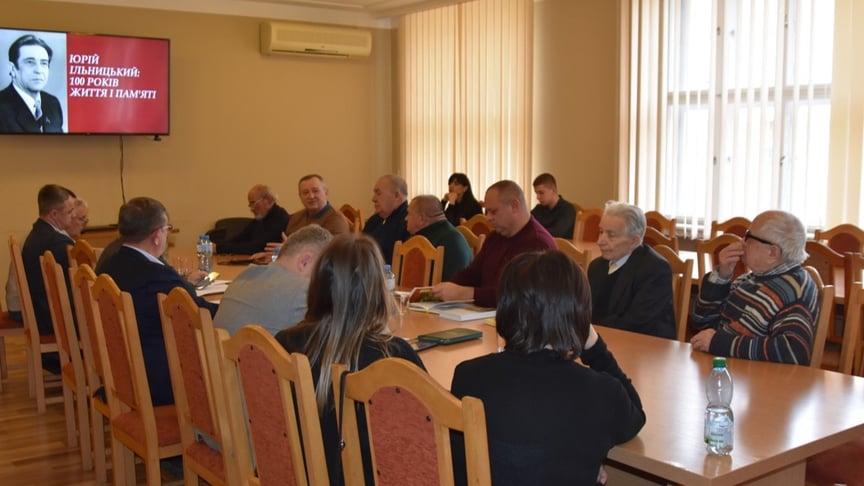The Zakarpattia Regional Council honored a figure from the Communist Party, sparking public criticism.

Information about the event is reported on the regional council's website.
The event took place at the beginning of this week, on December 23, and was dedicated to the 100th anniversary of the birth of Ilynetsky — the first secretary of the Transcarpathian Regional Committee of the Party from 1962 to 1980.
The event was initiated by the veterans' organization of Ukraine in the Transcarpathian region. The biography of the figure was presented by his nephew, the honored journalist of Ukraine Vasily Ilynetsky.
During the memorial event, it was noted that under Ilynetsky's leadership, "enterprises, schools, hospitals, and clubs were built in every settlement of the region."
"Ilynetsky always remained a principled person who defended the interests of the region," the regional council insists, adding that among his main achievements was the preservation of the region from "adventurous decisions of the Kremlin."
In particular, it is noted that Yuri Ilynetsky prevented the construction of nuclear power plants and a tunnel through the Carpathians for the diversion of Tisa waters.
"He advocated for the right of local personnel to hold leadership positions and defended the uniqueness of Transcarpathia," the regional council highlights.
However, the commemoration of the communist figure has caused embarrassment and criticism in society. Bishop Viktor (Bed) of Mukachevo and the Carpathians of the Orthodox Church of Ukraine believes that Ilynetsky "had a direct connection to all the crimes committed by the ruling Communist Party of the Soviet Union against the Ukrainian people during his communist activities."
Local journalist Bohdan Barbil, who began working during Ilynetsky's time, also does not understand the admiration for him. He states that Ilynetsky was "isolated from the common people of Transcarpathia on the fifth floor of the regional party committee building by a police post."
"We, journalists, were categorically prohibited from attempting to interview Ilynetsky and his secretaries under the threat of immediate dismissal. Only recordings from the podium were allowed," Barbil recalls.
According to the journalist, Ilynetsky deserves to be honored, but "in a family circle and at the office of the current local communists," not in the small hall of the local government body.
At the same time, many people supported the event, responding positively on social media to the announcement from the regional council about the event. Among them is the language ombudsman Taras Kremin.
The first deputy head of the Transcarpathian regional council, Andriy Sheketa, explained in a comment to “Ukrinform” that the event was "essentially a discussion among historians regarding a person who led the region for almost two decades." In his opinion, he could not have harmed the region or the country in any way.
"There are no other complaints against [Ilynetsky] except that he was a communist. It was a one-and-a-half-hour meeting involving family, scholars, and veterans who worked with Ilynetsky at that time," Sheketa said.
What is known about Ilynetsky?
The career success of Yuri Ilynetsky is remarkable. He was born in 1924 in a village of impoverished peasants. At that time, the Transcarpathian region was part of Czechoslovakia.
At the age of 12, he lost his father and worked on the family farm with his older brothers. In 1938, he entered the Volovets City School.
In 1944, Transcarpathia reunited with Ukraine. The following year, Ilynetsky joined the Communist Party. He was a student at the Higher Party School under the Central Committee of the Communist Party of Ukraine in Kyiv.
In 1969, at the age of 38, Ilynetsky became the first secretary of the Transcarpathian Regional Committee of the Party — the highest position in the region. He held this post for nearly two decades.
The Transcarpathian also served four times as a deputy of the Supreme Soviet of the USSR. Critics of Ilynetsky argue that he enjoyed the favor of Leonid Brezhnev, who headed the Communist Party of the Soviet Union.
He also published memoirs titled "Memories: From What Was Lived and Experienced." The party figure passed away in 2016.